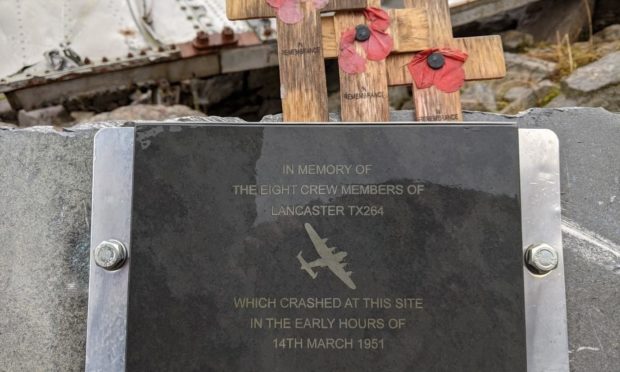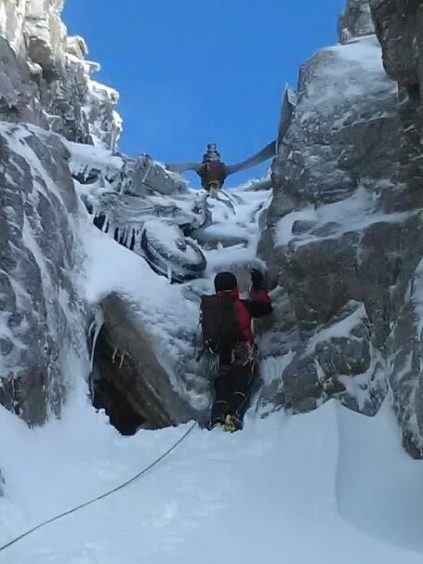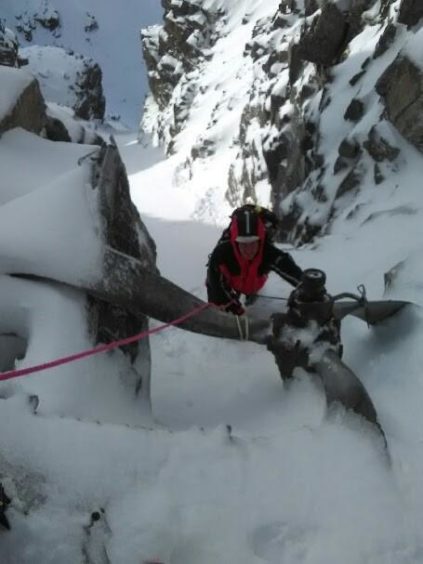The RAF Lossiemouth mountain rescue team will embark on vital training at the weekend to mark the 70th anniversary of a tragic crash.
Saturday will mark seven decades since the Lancaster bomber crashed into the summit of Beinn Eighe in Wester Ross – killing all eight crew members.
The remote location meant it took rescuers three days to locate the wreck of TX264 in 1951 with the recovery operation taking several weeks.
Aircraft parts remain to this day with them now serving as waypoints for mountaineers.
Coronavirus prevents anniversary being marked by RAF with hike to crash site
The mountain rescue team at RAF Lossiemouth had intended to climb to the summit to mark the anniversary of the crash.
However, Covid-19 restrictions mean the crew will currently only deploy for actual operations.
Deputy team leader Sergeant Ali Beer said: “The crash site still contains large amounts of wreckage and forms a very atmospheric winter climb known as Fuselage Gully.
“On the climb the mountaineers navigate through parts of the wreck. Further wreckage can be found at the foot of the mountain where a plaque to the crew was laid by the team.
“We look forward to being able to take our newest members on this challenging climb in the future.”
Crash was in awful weather conditions
The Lancaster had taken off from RAF Kinloss for a training flight and was returning to the Moray base at the time of the crash.
Crew members reported horrendous weather conditions at the time of the incident at about 2am.
As a result of the crash, the RAF revised the training provided to its mountain rescue team.
They now receive annual courses in winter and summer climbing techniques to allow them to face any situation.
Last month, crews helped motorists across Moray cope with dangerous drifting snow and freezing conditions.
Sgt Beer said: “It’s a shame we can’t climb the gully this year.
“It is an important part of RAF Mountain Rescue history and our training.”


